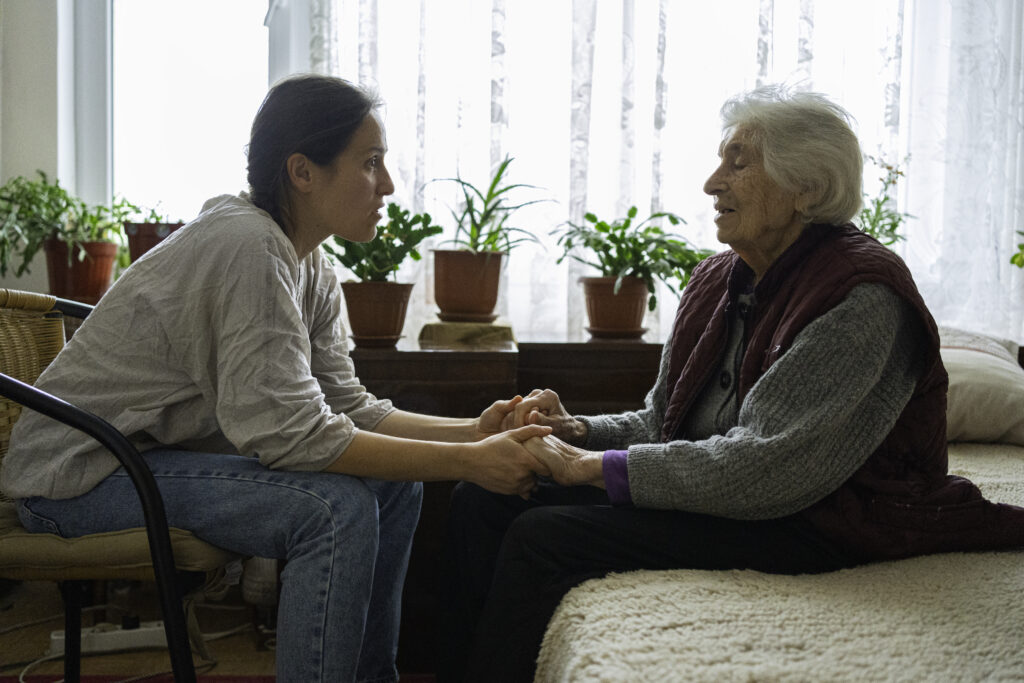Caregiving For Loved Ones Doesn’t Have to Disrupt Your Finances
Finding yourself in the situation of caregiving for a loved one and watching them struggle is a challenging place to be. Circumstances in life can change instantly when someone close to you falls ill. The most natural reaction is the urge to be a part of their recovery journey or help them transition into a new chapter of life.
According to the Caregiver Foundation, one in four American families–about 22 million households–care for someone aged 50 or older. Becoming a caregiver can feel like an instant decision without even considering the financial realities that could occur. It can also stretch you thin physically and mentally.
Caregiving falls into two categories: informal and formal.
- An informal caregiver is unpaid and often a family member or a close friend.
- A formal caregiver is paid to be responsible for day-to-day care, whether at home or in a facility.
It is common for several people to become informal caregivers, meaning they are not compensated for their time to watch their loved one after someone they love. Many of these caregivers still work part-time or maintain their regular jobs. However, they may be forced to choose between caring for loved ones or working and earning a salary.
That decision can cause debt and mental anguish. An AARP study found that 78 percent of family caregivers incur out-of-pocket costs averaging $7,200 annually. While we shouldn’t have to choose between a career and caregiving for our parents, grandparents, spouses, children, or other loved ones, it is a life-changing decision people make frequently.
Beyond Finance recognizes that the financial aspect of caregiving can be overwhelming, so we offer a few helpful tips.
Find Support Near You

You can not do it alone. Find other resources. Whether they come from other family members or friends, you need a community of support. Being solely responsible for a loved one can take a mental and economic toll due to worrying about finances or even wondering if you are doing a good job.
If your insurance provides it, or you can afford it outside of a policy, consider bringing in a night nurse or a medical professional who can relieve you for a few hours a week. To give your loved one your best, you must also tend to your needs.
Organize Your Loved One’s Life

In addition to the many things you must remember, you’re now tasked with handling all your loved ones’ affairs. That’s why being organized can help alleviate some stress and worry. Certain caregiving apps help track medications, feedings, and essential documents while providing checklists at your fingertips.
You can even add other family members or caregivers so everyone can see updates. It puts everything in one place for when you need it. Some free apps include:
Proper Insurance

Selecting medical healthcare providers and plans can be difficult when the list may be limited or tight on your budget. Call and speak with an agent; your insurance might cover additional help, including transportation to therapy or appointments. Sometimes, the benefits are there; it is just a matter of asking.
Plan Ahead

Although sometimes things can happen without warning, try having a plan curated beforehand. Talking with your loved ones and asking them those tough questions can save you in the long run. According to the Financial Caregiver Alliance, there are a few questions you should ask yourself and your loved ones:
- Is the home the best place for the care receiver to be?
- Is it more expensive to pay for assisted living, or is it more costly to hire a caregiver at home?
- If I provide the care as an adult child, can I spend some of my parents’ money on hiring a substitute or respite help so I can get a break from time to time?
- Would it be better for my parents to pay me to be the caregiver, or is it better to hire from outside?
- If we want to hire someone, should it be through an agency, or should we hire privately?
While it can seem overwhelming to be a caregiver, being prepared can be essential to giving your loved one the best care possible.
